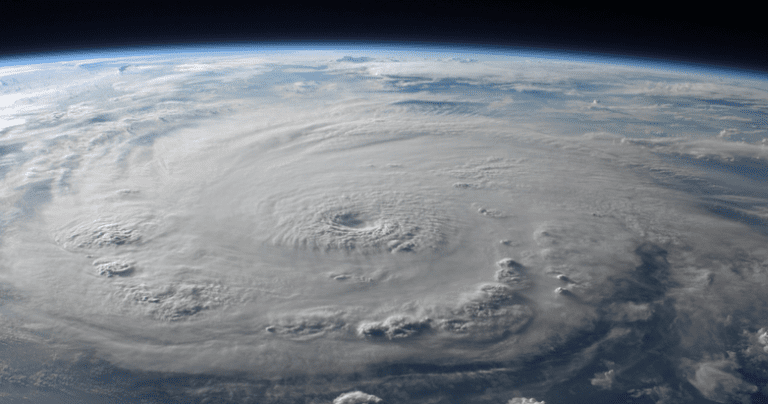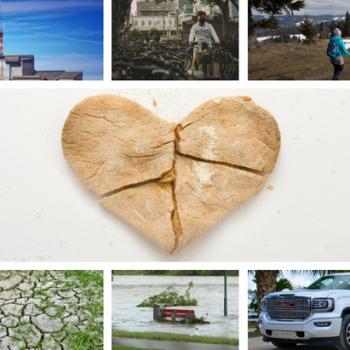
Last year, I heard a climate scientist admit that while the scientific community has gotten all the facts right in the climate debate, it has failed to win hearts and minds. That is a sad admission. It unveils a problem we need to fix.
Before I tell you what one word we can start using to change the global warming debate, let me tell you a story of how my father won over the hearts and minds of the leaders in a small town—both the city council and the business leaders.
They Won’t Do It for Their Grandkids!?
After the Kyoto accord was ratified (by most countries) in 1992, my father, a well-known businessman in his area, got wind of something called Local Agenda 21, which laid the groundwork for how to create sustainable local communities.
He read through the document, created a presentation, and got himself in front of the city council and the local business people.
His argument was simple: “We need to do this for our children and their children. We need to leave the environment in better shape than when we found it.”
His approach did not get a good response. In fact, he was flat out denied, told that it would be too much of a hassle, that the city council had more pressing matters on their hands.
He was disheartened.
I remember him telling me: “They won’t even do it for their grandkids.”
Appealing to Self-Interest
My father was known for a lot of things, but quitting wasn’t one of them. He went back to the drawing board and created a new proposal, this time focused on the self-interests of the leaders involved.
Yes, being a businessman, he made the proposal about money. He showed how both the city and the local businesses could save money and ultimately profit from making these changes towards sustainability. He also showed how spreading information about this voluntary effort would reflect well on the township and attract both tourists and people to live there. And he had put together the numbers to prove it.
His second attempt was successful and the proposal was both accepted and implemented. You may say that self-interest won, but, in reality, everyone won.
My Proposal
Today, we need start using a similar strategy and must do a better job of appealing to people’s self-interest. The idea of environmental protection has been an integral part of my spiritual journey, but most of my efforts to convince skeptics have failed. People are pretty set in their ways in this debate, sometimes even right out defiant, going out of their way to pollute because they ‘have the right’ to do so.
I first floated the idea of changing this one word over twenty years ago, but, at that time, most people seemed to shrug it off. Now, however, I feel like the people who care about this topic are looking for a new approach, and changing this one word might impact the debate more than our continual banging against the wall—save the trees, save the environment, etc.—has achieved until now.
I propose that we shift the focus off the environment and onto people.
Stop saying environmental protection.
Start saying human protection instead.
Human protection.
That’s it.
The Earth Will Survive
We are not saving the Earth. We are saving ourselves. If the human race continues on this unsustainable path and becomes extinct as a result, the Earth will bounce back. Sure, we will have killed an awful lot of species in the process, but the Earth will survive.
Reflect on the idea. We can only save ourselves. It’s the future of humanity that is at stake, not the future of the Earth.
Don’t think that changing one word will have an impact?
Think about this. A political strategist came up with a simple word change several years ago that skewed the debate. He found that the term ‘global warming’ didn’t poll well, so he suggested that politicians use ‘climate change’ instead, because people found it to be less ominous. As a result, what are we talking about today? Climate change. The strategist won.
We need ominous.
We need foreboding.
We need to create a sense of urgency.
The term ‘human protection’ creates a sense of urgency.
Coupled with data, projections, a continues appeal to self-interest, and references to the turbulence we have seen in recent months, pivoting to ‘human protection’ may actually end up swaying some diehards (although, I admit, I haven’t done the polling). Either way, it’s worth a shot. What we are currently doing isn’t working.
Human protection.
Try it.
Gudjon Bergmann
Author & Interfaith Minister
Picture: Pexels.com CC0 License
















